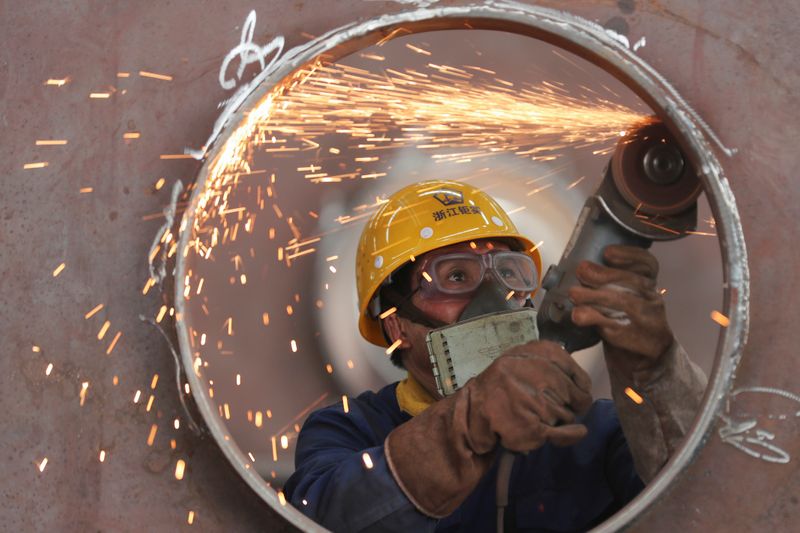By Gabriel Crossley
BEIJING (Reuters) - China's factory activity probably grew for the fifth month in July, but at a slower pace, as floods disrupted manufacturing and a resurgence in coronavirus cases around the world threatens to undermine the gradual domestic recovery.
The official manufacturing Purchasing Manager's Index (PMI) is expected to ease to 50.7 in July from June's three-month high of 50.9, according to the median forecast of 29 economists polled by Reuters. A reading above 50 indicates an expansion in activity. The survey is due to be released on Friday.
Gauges ranging from trade to producer prices have all reflected signs of a further pick-up in manufacturing, but analysts say factories could have a tough time maintaining momentum as pent-up demand wanes and heavy flooding across large swathes of China disrupts economic activity.
"The water level of areas along the lower reaches of the Yangtze River remain at alarming levels, weighing on production and demand in these regions, including the Yangtze River Delta, which is China's industrial and commercial heartland," said analysts from Nomura in a note.
Rising Sino-U.S. tensions could also pressure China's exports and manufacturing investment in the coming months, they said.
China has largely managed to recover from strict lockdowns that had led to weeks of economic paralysis, although it is now battling the most aggressive return of the novel coronavirus in months, driven by infections in the far western region of Xinjiang and a separate flare-up in the northeast.
A Reuters poll this month has forecast GDP to expand 2.2% in 2020, up from 1.8% projected in the last poll in April, with recently improving data underpinning the more upbeat outlook.
Imports in June rose for the first time since the health crisis hit the economy, as government stimulus stoked demand for commodities, while exports, fuelled by medical goods, also rose in a sign the recovery is gaining traction.
Profits at China's large industrial firms also rose at the fastest pace in over a year that month on easing costs and improving demand.

The fallout from the global pandemic, however, has left factories operating below strength amid slack demand. June factory gate prices fell in annual terms for the fifth consecutive month but at a slower-than-expected rate.